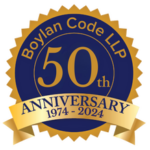The use of social media in the workplace is aptly described as a double-edged sword for employers. On the one hand, allowing employees to use social media can help increase customer interaction, enhance online visibility and build overall brand awareness. On the other hand, employees can also cause harm to their employers by using social media to criticize the company or its clients or by inadvertently disclosing sensitive company information or trade secrets (for example, posting to Facebook about a pending business deal or product launch and release dates). Therefore, and in order to balance these competing considerations, employers are urged to adopt an appropriate policy for social media use. However, that is no easy task, particularly in light of the fact that the National Labor Relations Board (NLRB) continues to take the position that it has the authority to regulate employer policies on the use of social media.
Section 7 of the National Labor Relations Act (NLRA) applies to both union and non-union employers. It grants employees the right to “self-organization, to form, join or assist labor organizations to bargain collectively through representatives of their own choosing, and to engage in other concerted activities for the purpose of collective bargaining or other mutual aid or protection,” which includes discussions among employees concerning their terms and conditions of employment. Section 8(a)(1) of the NLRA prohibits employers from interfering with, restraining, or coercing employees in the exercise of their Section 7 rights. While protected “concerted activity” has traditionally applied to face-to-face discussions, with the increased usage of social media sites such as Facebook and LinkedIn, the NLRB has expanded the scope of concerted activity to include online discussions. As a result, the NLRB now contends that certain restrictions on communications through social media unlawfully restrict employees’ rights in violation of Section 8(a)(1) of the NLRA. The recent decisions in Costco Wholesale Corporation and United Food and Commercial Workers Union, Local 371, 34-CA-012421, 358 NLRB No. 106 (Sept. 7, 2012) and EchoStar Technologies, LLC and Gina M. Leigh, Case No. 27-CA-066726 (N.L.R.B. Div. of Judges, Sept. 20 2012) illustrate how the NLRB is shaping the law in this arena.
In the Costco case, the NLRB issued a decision finding that Costco Wholesale Corporation’s policy on electronic postings violated Section 7 and Section 8(a)(1) of the NLRA. Costco’s policy stated that employees who electronically post statements “that damage the Company, defame any individual or damage any person’s reputation or violate the policies outlined in the Costco Employment Agreement” would be subject to discipline. The NLRB found that that while the policy did not explicitly reference Section 7 activity, by its terms, the broad prohibition against making statements that damage the company encompasses concerted communications protesting treatment of Costco employees. Therefore, employees “would reasonably conclude that the policy requires them to refrain from engaging in certain protected communications (i.e., those that are critical of Costco or its agents).” In its decision, the NLRB cited the fact Costco’s policy contained no savings clause protecting Section 7 activities, suggesting that the decision might have been different if such a clause had been included.
Following quickly on the heels of the Costco decision, an ALJ for the NLRB ruled against EchoStar Technologies in a similar case involving the restriction of employees making critical comments about the company on social media sites. Like in Costco, the EchoStar policy broadly banned employees from “disparaging” comments and accessing social media sites with company resources on company time. In the ruling, the ALJ found that an employee would reasonably interpret “disparaging” as interfering with Section 7 protected activities. In addition, the ban on accessing social media sites on “company time,” was too all-encompassing and could include an employee’s personal time such as breaks and lunch. Also of particular note is that EchoStar’s handbook included a “savings clause” stating that “should a conflict arise between an EchoStar policy and the law, the appropriate law shall be applied and interpreted so as to make the policy lawful in that particular jurisdiction.” However, and notwithstanding the previously discussed dicta in the Costco case, the ALJ found that the savings clause did not save the EchoStar policy because a reasonable employee would not react to such a savings clause.
These recent decisions demonstrate that the NLRB will closely scrutinize any policy, including social media policies, that potentially interfere with an employee’s ability to engage in protected concerted activities. Accordingly, employers should continue to take caution and consult with legal counsel in deciding whether to implement social media policies and related policies involving employee communications, and how best to frame the content of such policies.
Scott Mooney is an Associate at Boylan Code LLP, concentrating his practice in employment law and commercial litigation matters. For more information, please contact Scott at (585) 232-5300 or smooney@boylancode.com.


